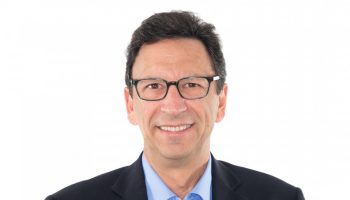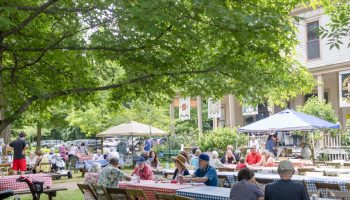Guest Column from Chautauqua Dialogues
The Inclusion, Diversity, Equity and Accessibility (IDEA) Strategic Plan asks every Chautauqua community group not what Chautauqua Institution can do for us, but together what and how community groups and the Institution can implement the plan?
The plan asks us to align our mission and vision statements, as well as our actions to help accomplish its objectives. Chautauqua Dialogues has identified a key “Shared Value” in the plan as the foundation for its initial focus for action: “Dialogue to achieve enhanced understanding that leads to positive action.”
Over the last 11 years, Chautauqua Dialogues has created a methodology for conversation that facilitates a level playing field for discussion. A key mechanism provides participants an opportunity to reflect on what resonates with them from the lectures they hear and a path to articulating their thoughts and feelings in a civil manner.
Chautauquans have the opportunity to participate as either dialogue participants or as facilitators. We have created a curriculum for training Chautauquans who wish to become dialogue facilitators. Training is open to everyone and encourages short-term residents to participate. It begins online during the off-season and continues during the season when experienced facilitators mentor newcomers in live sessions.
Our program emulates the tradition of training Sunday school teachers that began in 1874 at the Chautauqua Lake Sunday School Assembly, the first Chautauqua Assembly. John H. Vincent believed that Sunday school teachers must have appropriate training to be effective in leading their classes. The coordinators of Chautauqua Dialogues believe likewise. Just as John H. Vincent and Lewis Miller developed a prescribed course much broader than Bible lectures, the founders of Chautauqua Dialogues have developed a course that not only teaches techniques for a great conversation, but also provides course materials and instruction that emphasize how different cultural forces impinge on our ability for civil and open discourse. And, just as Vincent and Miller planned for teachers to return to their communities to do good work, we too plan for our facilitators to return to their communities to do good work.
Chautauqua Dialogues is blessed by partnerships with 12 denominational houses and Hurlbut Church that act as host venues for the program. This has allowed the Dialogues to increase the number of opportunities for Chautauquans to enter into sessions at 14 different locations on different days and times on a weekly basis.
Chautauqua Dialogues gives people an opportunity to enhance their Chautauqua experience by becoming more than a consumer of information. Now, Chautauquans have the opportunity to engage with others, learn from others and see how others perceive information in a much different way than they do themselves. We want every participant to see how important it is to listen to others, be able to articulate their thoughts and feelings, and know that their opinions have value.
We are hopeful that our dialogues model a different path for our community and our nation — particularly to stay in conversation with others. You can find out more information about our offerings and reserve a spot for yourself at www.chq.org/dialogue. We welcome all to participate.
Roger Doebke & Lynn Stahl
Chautauqua Dialogues Lead Coordinators





